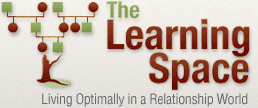The Learning Space Blog
The Brain on Conflict
It was a sunny morning in April as I joined the American Bar Association’s annual conference at the Hyatt in DC. I was there to present with my colleagues Richard Alper and Jack Wofford, both are lawyers but more importantly, both are mediators. While trained in the traditions of the law, they each sought out the added skills to assist their clients reach settlements in ways to reduce conflict and protracted litigation. The sessions that I attended and learned so much from, were the ones that had to do with the brain and conflict. There are a growing number of alternative dispute resolution folks, as they have come to call themselves, who are working to understand the neuroscience of the brain on conflict.
I attended and learned a lot. The conference has kept me thinking about just how complicated and hardwired our brains are, especially under conflictual circumstances. One session that I am still pondering had to do with experiments that several mediators are using to move disputes from a fixed seated discussion to one where the parties are encouraged to get up and move around to enhance thinking and the ability to develop alternative points of view. I am not sure that I understand exactly what to do with what I learned, but walking and changing position and seating had a demonstrable impact on changing or should I say enlarging perspectives.
One session that was titled “Strategies for Getting Lawyers to Negotiate and Mediate Sooner and Better Sooner" impressed me about how the practitioners and pioneers in this field came to understand the possibilities that mediation provides. Two attorneys, one who headed a large legal department in a Fortune 500 company and another at a healthcare company, made the strong case to listen earlier when conflict surfaces, gather facts sooner, consider mediation in order to settle sooner and with more success. They both made the case that there is much to be gained emotionally and economically—not fighting, but listening, learning and reaching an early agreement is the best path. In addition, they mentioned that significant savings were realized with regard to their legal costs.
Interestingly enough, my siblings and I are about to enter a legal dispute having to do with my Dad's estate. There is much upset that the other party would have done what we think that he has done. I am "hurt" and mad and there is part of me that wants him to pay for the disrespect he has shown for my Dad’s memory. Sitting in that room gave me new information about alternative routes that I might follow if I can rein in my emotion and control my hurt feelings. There was a great deal to take away from this meeting for me personally and professionally with regard to the inevitable conflict that surfaces in all of our lives. I will keep learning.
Blog Categories
Blog Archive
- June 2019
- December 2018
- October 2018
- June 2017
- February 2017
- July 2016
- February 2016
- November 2015
- August 2015
- June 2015
- April 2015
- February 2015
- December 2014
- October 2014
- September 2014
- August 2014
- July 2014
- June 2014
- May 2014
- April 2014
- March 2014
- December 2013
- October 2013
- August 2013
- July 2013
- June 2013
- April 2013
- February 2013
- January 2013
- December 2012
- August 2012
- July 2012
- June 2012
- March 2012
- February 2012
- January 2012
- December 2011
- November 2011
- October 2011
- September 2011
- August 2011
- July 2011
- June 2011
- May 2011
- March 2011
- January 2011
- December 2010
- November 2010
- October 2010
- September 2010
- May 2010
About the Learning Space
"The Learning Space is a creative, energetic thinking space for individuals striving to live optimally in all their most important relationships. The Learning Space provides a conceptual space—a place to consider and experience alternate ways of relating."
Read More »
Upcoming Events
view events »Newsletter
Fill out the form below to subscribe to The Learning Space's quarterly newsletter, and get exclusive invitations to special learning forums and other events.

